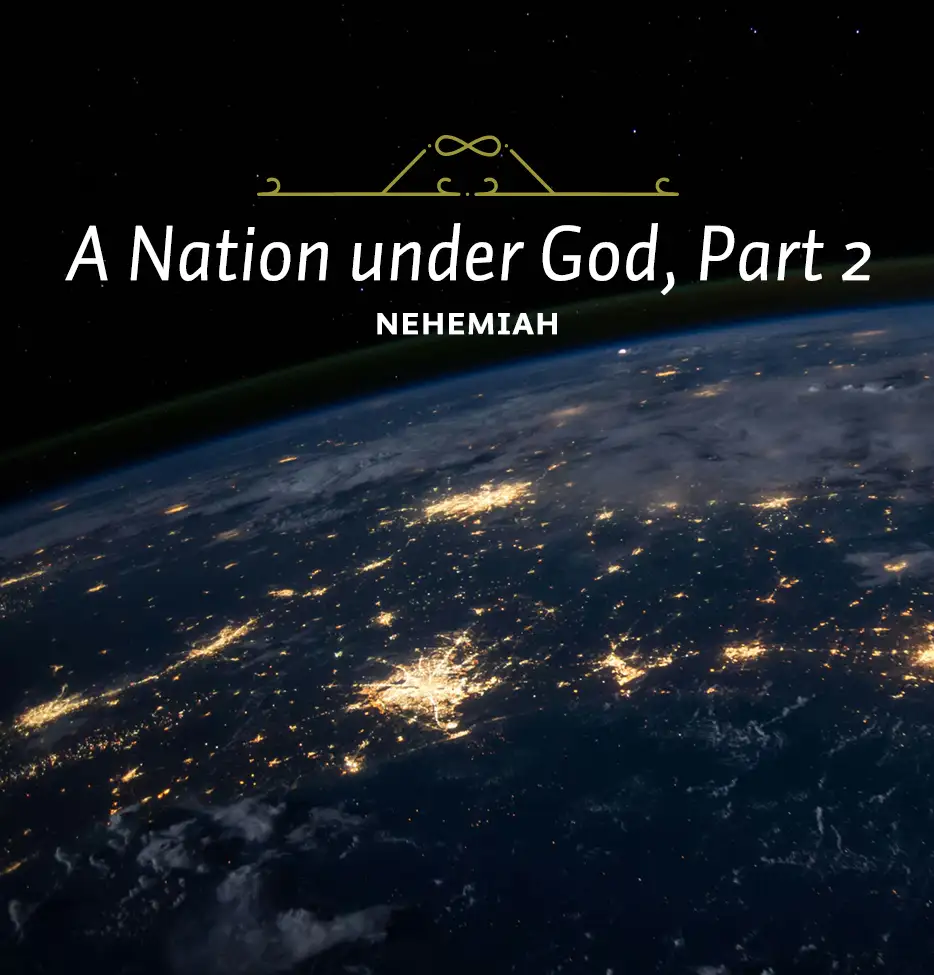In yesterday’s study, we concluded by observing that when the people expressed sorrow for sin, Nehemiah and the Levites directed to people to celebrate the Feast of Tabernacles.
I find two very interesting things about this. First, Nehemiah did not take advantage of the people’s first outburst of sorrow to manipulate them and thus push the revival forward. Moreover, the governor wanted to direct the people’s thoughts to God and not to have them centered on their own feelings, however proper their sorrow and repentance for sin might be. The feast Nehemiah prescribed was a feast of thanksgiving for who God was and for what He had done.
We see the same thing in chapter 9. Here, even after the day of penance is allowed to go forward, the prayer of the Levites, which occupies the bulk of the chapter, is still focused on the greatness of the acts of God.
The second thing I notice is what I have already alluded to, namely, that although Nehemiah delayed the day of public repentance by more than three weeks, it did nevertheless occur. It was as strong and genuine then as it would have been at the beginning. This is a way of saying that this movement of repentance was wholly and genuinely of God. If it had been of man only, or if it had only been something that Ezra or Nehemiah had whipped up, it would have faded away.
The first verses of chapter 9 tell what finally happened. I notice two important things about this movement of repentance. First, the confession of the people was once again linked to a reading of God’s Law. This had happened on the first day of the month (recorded in chapter 8). It happened again here. It was after the priests had been reading from the “Book of the Law of the LORD their God for a fourth of the day,” that the people spent the next fourth of the day (three hours) confessing their sin.
What I am pointing out is more than just an observation, more than as if I were saying merely that this is just what happened. There is a necessary link between the two. Let me explain what I mean by defining sin. What is sin? The Westminster Shorter Catechism answers that question by replying: “Sin is any want of conformity unto or transgression of the law of God.” That is right: the important thing being that sin is defined by reference to God’s law. This is what makes it sin, as distinguished from an act which is merely mean or offensive or criminal.
Let me put the definition and relation of sin to revival in a series of linked statements.
1. There can be no genuine forward moral progress for either a nation or an individual without an acknowledgment of, sorrow for and a true turning from sin. In other words, nations move forward spiritually and morally only in times of revival.
2. But there can be no true sense of what sin is or a knowledge of why it is sinful without a hearing of and response to the law of God. That is, we will never acknowledge sin to be sin or grieve over it unless we see it as an offense against God, and the only way we will ever see or sense that it is an offense against God is by seeing our actions as contrary to God’s written law.
3. Consequently, revival must be preceded by sound preaching of the whole counsels of God, particularly the law of God which we have violated.
The second thing I notice about the people’s confession of sin was that it was corporate as well as individualistic. I mean by this that the people not only recognized their own individual sin and confessed it but also understood that they were part of a people or nation and were therefore also collectively guilty. The text expresses this when it says that the people “confessed their sins and the wickedness of their fathers” (v. 2).






